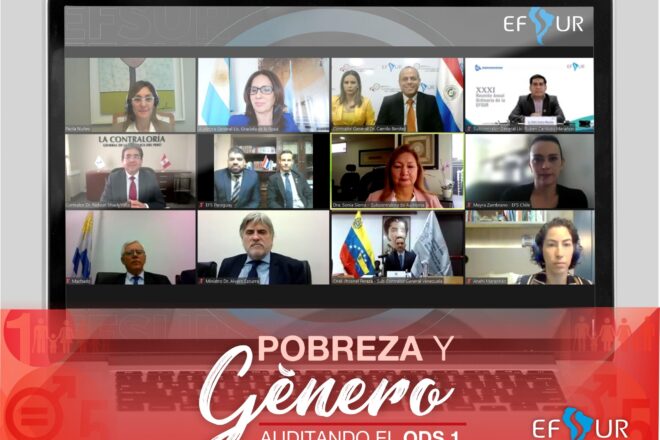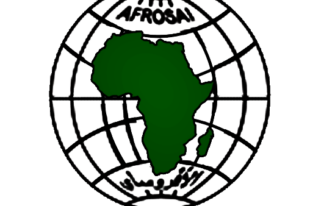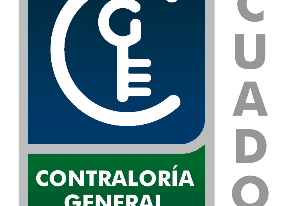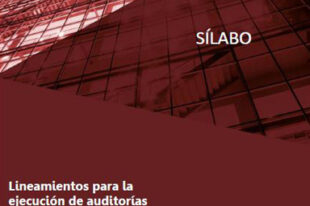Poverty and Gender: Auditing SDG 1 in Latin American Countries

At the November 18, 2021, Annual Meeting of the Supreme Audit Institutions of the Mercosur and Associated Countries (EFSUR), a progress report was introduced on an effort to identify and assess policies that advance United Nations’ Sustainable Development Goal (SDG) 1 (end poverty) from a gender perspective. The SAIs of Argentina, Bolivia, Chile, Colombia, Ecuador, Paraguay, and Peru, as well as the Comptroller of Bogota, have engaged in this important examination of the feminization of poverty in the region.
According to the UN Secretary-General’s policy brief, “The Impact of COVID-19 on Women,” the pandemic has deepened gender inequalities—such as the time spent on caretaking and domestic chores—and could roll back even the limited gains made in the past decades. EFSUR is taking on the challenge of analyzing the impact of the pandemic on poverty levels and gender inequalities.
EFSUR will continue reviewing policies implemented to meet SDG 1 from a gender perspective in a new coordinated audit that will begin in 2022. This effort will build on substantial work previously conducted on this issue. Coordinated audits of SDG 1 carried out in 2016 and 2019 addressed aspects of targets 1.2 (multidimensional poverty) and 1.4 (basic services) from a gender perspective.
In accordance with recommendations from INTOSAI and the INTOSAI Development Initiative (IDI), the EFSUR Technical Coordination Group defined indicators to measure countries’ preparedness to implement SDG 1. These indicators focused on three topics: adapting goals to a gender perspective, mechanisms to ensure compliance with targets 1.2 and 1.4, and monitoring and assessment of results.
The coordinated audits’ recommendations included:
- Implement mechanisms for citizen participation in the design, implementation, and monitoring of public policies;
- Incorporate a gender perspective from the initial planning to the final evaluation stages; and
- Assess and improve traditional measurement tools, and develop gender-specific indicators.





